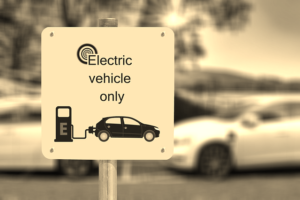
Have you been waiting for the right moment to purchase an EV? You may have noticed certain vehicle manufacturers have had their tax credits phased out over the last few years. In August, The Inflation Reduction Act ushered in several new and expanded tax credits for electric and hybrid vehicle purchases and energy efficient home improvements. This could finally be the time to make that purchase of your next (or forever) car.
While The Reduction Act reinstated a credit of up to $7,500 for a new EV purchase and extended its availability to 2032, a cap on income will take effect in 2023. Individuals with income of $150,000 or greater (above $300,000 for couples) will be ineligible for the credit. Also, new qualifying vehicles will be limited based on their sale price – $65,000 for sedans and $80,000 for SUVs. Other phased-in requirements for vehicle manufacturers (such as final assembly and battery production location in the US) will also apply.
If, instead, you are pondering a used-car purchase, a new tax credit of up to $4,000 is now available for electric or hybrid vehicles selling at less than $25,000 and at least two-years old. Income restrictions, half those noted above for new cars, will also apply. And whether new or used, your EV will require a “qualified alternative fuel vehicle refueling property” (otherwise known as an at-home charging station). Installing this could provide a tax credit of up 30% of the complete cost, for a maximum of $1,000.
Contemplating energy efficient home improvements rather than a vehicle? By spreading out your home projects, you may be able to take advantage of the new annual tax credit for fuel systems, boilers, water heaters, doors and windows, energy audits, and more. Beginning in 2023, up to 30% of the total cost of eligible home improvements will be available as an annual tax credit. The Act increases annual limits on certain key improvements, removes limitations on others, and offers rebates to certain homeowners on qualifying electric appliances.
Smart Money Tips
- This may not be a good time to be buying mutual funds in your brokerage accounts. With late year mutual fund purchases you risk buying just before the fund company pays a dividend. Most of them distribute dividends in December. This is not a concern with your retirement accounts since you don’t pay taxes on them until you begin making withdrawals. But you could risk an unwanted tax bill if you buy a fund for your taxable brokerage account late in the year.
- Buy generic. Instead of just picking out the name brand item you buy at the grocery or drug store, try out the store brand or generic version. You’ll probably discover that the generic is just as good as the name brand at less cost. In addition to groceries, you can further reduce your spending by buying generic over-the-counter medications and personal care products. Last but by no means least, buying generic prescription medication can be a big money saver.
Food for Thought
We think that democracy can change a lot of things, but we’re being fooled, because democracy is not the election. We’ve been taught that democracy is having elections. And it isn’t. Elections are the most horrendous aspect of democracy. It’s the most mundane, trivial, disappointing, dirty aspect.
-Gael Garcia Bernal
Money Can Be Funny
There’s no trick to being a humorist when you have the whole government working for you.
-Will Rogers
Word of the Week
kakistocracy (ka-kis-TOK-rasi) – Government by the least qualified or most unprincipled citizens.
Origin: From the Greek kakistos meaning worst, and kratia meaning rule.
Thanks to voter indifference, the country degenerated from a democracy into a shabby, miserable kakistocracy.
